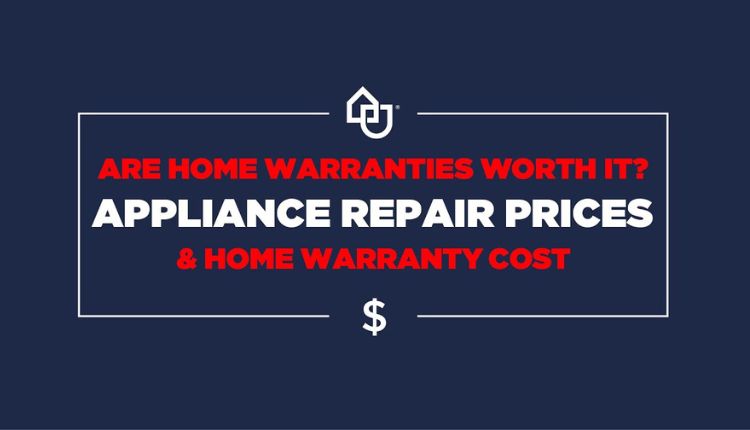As you may know, extended warranties are money-making products for the companies that offer them. That’s why they’re typically expensive and often include coverage limits that leave homeowners on their own if repairs exceed the limit. Many retailers and manufacturers offer extended warranties when you purchase appliances. Alternatively, you can buy a home warranty to cover most of your appliances and critical systems.
Coverage For All Your Appliances
Appliance manufacturers often offer extended warranties as an add-on when you buy a new appliance. They may also sell them separately through third-party companies. These warranties typically cover appliances during the first few years of their life span when they are least likely to break. They also provide narrow coverage, limiting repairs to those caused by a manufacturing defect. These plans can be expensive, and there’s always a chance you won’t end up using them. Plus, if you want to cover more than appliances, you’ll need to purchase multiple plans.
Another alternative is to set aside a certain amount of money each month and use that for appliance repair costs. However, this requires dedication and may not be enough to cover all your repairs. It can also be hard to keep track of all the separate payments and bills. A home warranty can simplify things and provide a more comprehensive plan. It’s also often less expensive than an appliance extension warranty.
Unlimited Claims
Typically, when you purchase an appliance, it comes with a manufacturer warranty. Generally, the warranty covers functional parts and labor for a specific period of time. However, this coverage is limited to issues that are due to manufacturing defects. A home appliance warranty, also known as an extended warranty or an appliance protection plan, offers more comprehensive coverage. In addition to covering items with a manufacturer’s defect, these plans may include wear-and-tear issues and power surges.
Appliance Extended Warranty can be a good option for homeowners looking to reduce their out-of-pocket repair costs and protect their investments. While these plans do cost less than home warranties, they cover fewer items and may be difficult to manage with multiple policies. In addition, most manufacturer warranties do not transfer if the homeowner moves or sells their home. Home warranties are, on the other hand, transferable and may add value to your property. Moreover, they provide access to experienced service technicians and are available to renters.
No deductibles Or Hidden Fees
A warranty plan protects you against the risk that a high-ticket purchase will fail prematurely. However, warranties are designed to be profitable for companies that sell them. If you purchase a warranty plan, you should carefully consider whether or not it is worth the investment.
Home appliance warranty plans offer flat up-front costs that don’t increase over time. They also provide convenient and fast service with experienced service technicians. After you file a claim, most appliance warranty providers send a technician to your home. The technician will assess the issue and either repair or replace the appliance. Most appliances are repaired within 24 to 48 hours. Some appliances, such as refrigerators, can only be covered by the manufacturer’s limited warranty. However, you can buy an extended warranty to extend the protection on those items. These warranties are typically less expensive than home warranties, but they cover only one appliance at a time. Home warranties are more comprehensive and cover a wide range of appliances and home systems.
Simple To Manage
Appliances are a huge investment and you want to keep them running for as long as possible. A home appliance insurance plan is an affordable way to protect your appliances from costly repairs and replacements. Appliance extended warranties, also known as appliance protection plans or service contracts, provide a network of professional service technicians and reduce repair or replacement costs when a covered item breaks down. They are available through retailers or third-party companies and may be offered as an add-on at the time of purchase or shortly after the manufacturer’s warranty expires.
It is important to understand the terms and conditions of your appliance extended warranty before purchasing. Some include a waiting period or a deductible that must be met before repairs are made. Others exclude certain types of items or require proof of the age of your appliance when making a claim. You can find out more about the fine print by comparing providers online.
Conclusion
Appliance Extended Warranty home appliance insurance protects consumers from unexpected breakdowns and malfunctions. Salespeople often push these service plans, which are money-making products for the companies that offer them. These plans usually cost a reasonable amount upfront and cover repairs or replacement costs for a longer period than the manufacturer’s standard warranty. However, they aren’t always a good investment.

